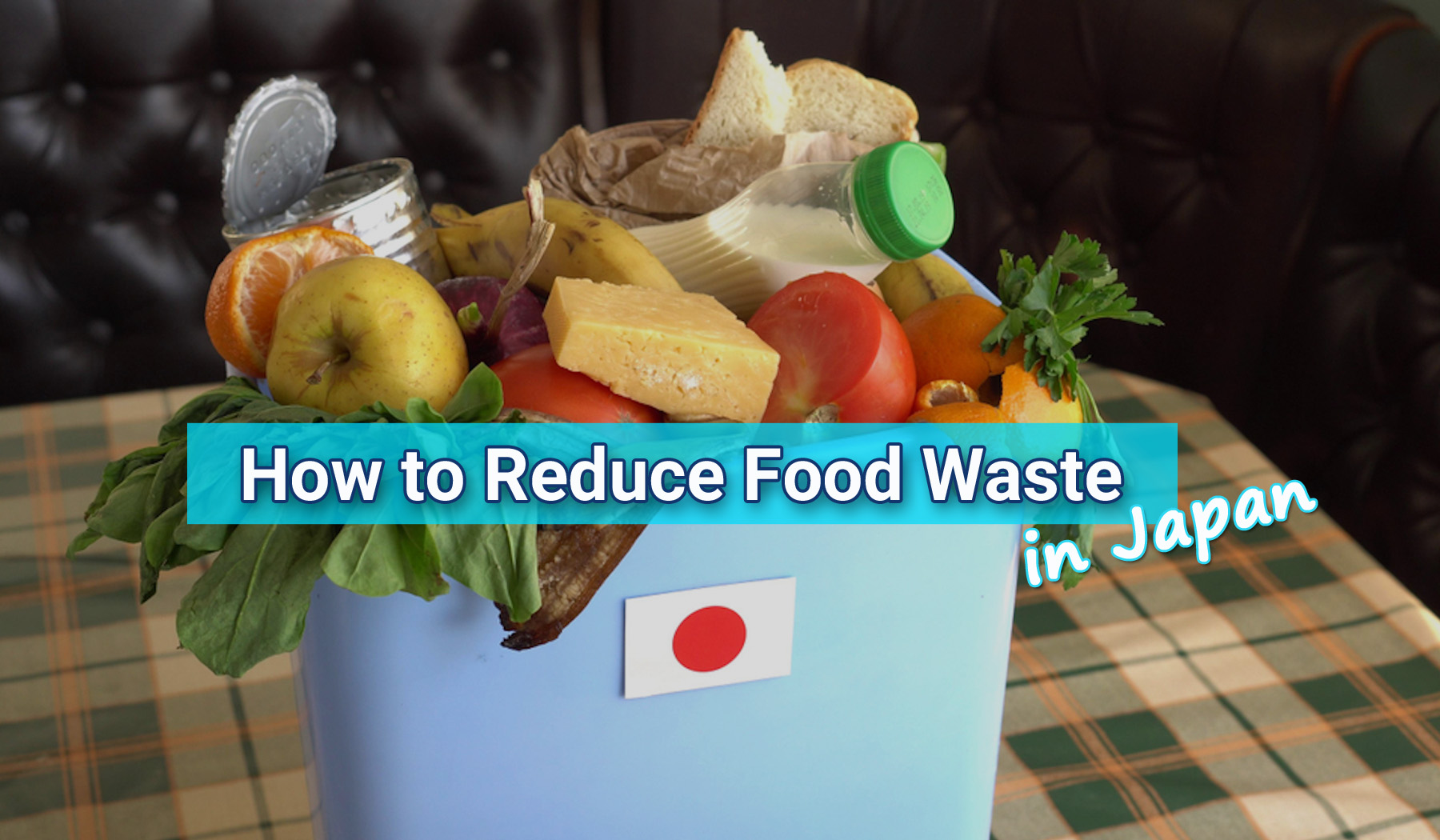How to Reduce Food Waste in Japan: Steps to Sustainability

Like many other countries, Japan faces a severe problem with food waste. This issue occurs throughout the entire process of food production and consumption, leading to economic losses, environmental impacts, and adverse effects on global nutrition. Japan alone produced 5.22 million tons of food waste in 2020. This waste is divided into two categories: food loss, which refers to issues occurring before food reaches the consumer (such as during production, storage, and distribution), and food waste, which happens during retail or consumption stages.
In this article, we'll go over some primary roots and causes of food waste in Japan and propose several solutions to Japan's food waste issues. Please also read articles below.
>> Minimizing Food Loss: Finding Supermarkets in Japan that Sell Expired (Expiring) Food
>> What is Mottainai? The Japanese Meanings and Expressions
>> List of Food Banks in Japan
Causes of Food Waste in Japan
Japan faces various problems that result in food waste. Some of the most significant issues include:
The Food Industry's One-Third Rule
Japan's food industry has a strict 'one-third' rule that contributes significantly to food waste. This rule was implemented in the 1990s to meet the increasing demand for fresh ingredients and products. According to this rule, producers must deliver food and beverages within the first third of the period between the production and expiration dates. For example, suppose a product has a six-month expiration period. In that case, the retailer must receive the product within a time frame of two months. Distributing perishable goods with a short shelf life across the country within a few days can be challenging.
Food delivered after the first third must either be returned to the producer or thrown away. Although many countries have similar rules, this one is stricter than most, resulting in significant unnecessary food waste, including perfectly acceptable items within their expiration period.
People Prefer Perfect Pretty Produce
Consumer behavior has also led to a large amount of food waste. In Japan, this contributes up to half of all food waste. A large part of this is the demand for 'pretty' produce. Consumers want to produce that fits a perfect image, with no flaws, unusual shapes, or discolorations. However, produce naturally has variation. In response to demand, retailers discard many produce items for not being 'pretty' or 'perfect' enough.
Effects of Food Waste in Japan

The problem of food waste is a significant one that affects our health, economy, and environment. It's alarming to know that globally, 24% of calories are wasted, which is enough to feed those who are hungry.
Benefits of Reducing Food Waste
Reducing food waste would have several individual, business, country, and global benefits. It also involves improving the food system, including making the existing processes more efficient. On a financial level, reducing food waste would save businesses millions of dollars yearly. It would save individual households thousands of dollars. Reducing food waste would improve nutrition and food security for many disadvantaged or at-risk communities worldwide. With over one-third of all food produced wasted, there is room to improve our systems and actions at all levels to create a more nutritionally healthy world.
Practical Food Waste Solutions

We all have a responsibility to address the issue of food waste and its harmful consequences. The situation requires action from individuals, businesses, and governments at all levels.
What Government Entities Are Doing About It
Japan has taken a significant step towards reducing food waste by passing a new law. The Act on Promotion of Food Loss and Waste Reduction aims to reduce food waste by 50% by 2030. The law encourages businesses to find ways to minimize their food waste and donate their surplus food to schools and welfare organizations. In some prefectures, citizens are encouraged to adopt lifestyle changes that support this goal. Food waste is an important issue, and seeing a country taking concrete action to address it is heartening.
Business-Level Food Waste Reduction
At a business level, improved inventory management and date labeling can reduce food waste. Current examples of this include the convenience store Lawson's use of AI technology to match stock with customer demand. The program aims to minimize overstocking and discarding of unsold food. Many retailers have also started donating to various food banks and charities, such as Second Harvest, Japan's first nationwide food bank. There are also apps where retailers and producers can sell leftover, close to expiry, or not 'pretty' food at a vastly discounted price.
Consumer-Level Food Waste Reduction
As a household, there are several ways to improve our approach towards food waste. These include understanding the best ways to store food and differentiating between best-by and expiry dates. Other helpful actions include composting at home and using seasonal produce. Additionally, planning meals in advance, creating a shopping list that aligns with the meal plan, and repurposing leftovers can all help reduce food waste and save money daily.
Incorporating Japanese Food Culture into Food Waste Reduction
While food waste is a significant problem worldwide and in Japan, many aspects of Japanese food culture can work seamlessly with food waste reduction efforts, resulting in easy implementation in Japan. This includes projects like convenience stores rewarding customers with more points for purchasing bentos (popular daily lunchtime or dinner items in Japan) closer to the expiry time. This new method incentivizes customers to buy older rather than freshly-displayed items.
Another new introduction is the policy change at Royal Host, a Japanese family restaurant, allowing customers to take home leftovers. Previously, and in most Japanese restaurants, leftovers are returned to the kitchen and discarded. With leftovers taken home and used for the next day's lunch, restaurants can significantly reduce food waste.
On a cultural level, approaching the issue from a 'mottainai culture' viewpoint is a great way to improve understanding. Mottainai culture surrounds wasting nothing, using and reusing everything. With this approach, reducing food waste should be easily incorporated.
Forging a Sustainable Path: Embracing a Future with Less Food Waste
The UN has listed reducing food waste as one of its Sustainable Development Goals, a problem that every country should address. Food waste adversely affects nutrition, the economy, and the environment. Reducing food waste can improve these areas and benefit different individuals and groups. Governments and individual consumers can take various actions to achieve this. With systemic and personal changes, reducing food waste is an attainable objective for Japan and the rest of the world.
If you found this article interesting and helpful, check out our other articles on everyday life in Japan, too!
















